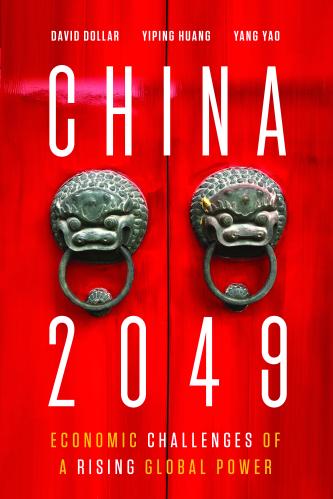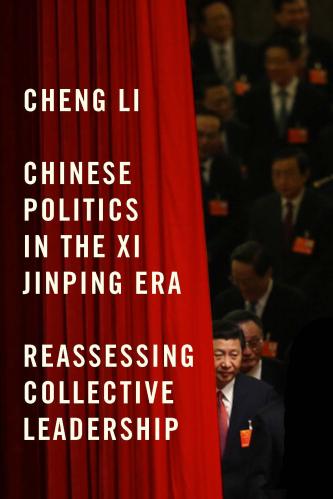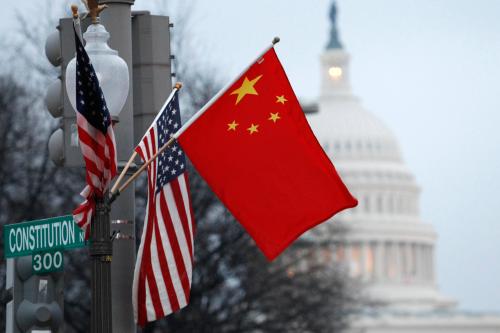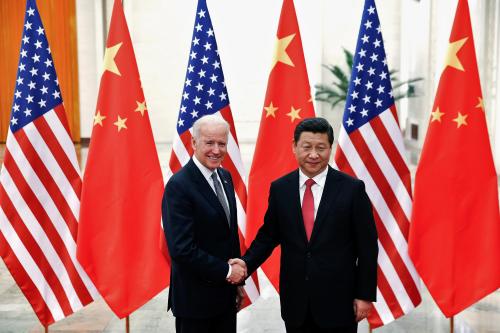As the calendar turns to 2021 and a new presidential administration prepares to enter office, so too are the contours of debate shifting over the proper American response to China’s rise. Already, the early outlines are coming into focus around questions of how best to strike a balance between broad-gauge competition and limited cooperation in the U.S.-China relationship.
With the departure of the Trump administration, the rhetorical noise about that relationship as a Manichean good vs. evil struggle likely will go down a few decibel levels. Under Biden, the purpose of American foreign policy will be focused on how best to tangibly improve the health, security, and prosperity of the American people.
As this transition unfolds, so too will debates about how — and on what issues — to coordinate with China. Already, climate issues have become a symbol of this debate.
Outgoing Trump administration officials have warned anyone who will listen that China is setting a trap for the Biden administration on climate issues, and that the Biden team would be suckers to fall for it. Variations of this theme have been picked up and amplified in the Washington Post, The New Yorker, The Atlantic, and elsewhere. Some leading thinkers in Asian capitals similarly have fretted about the possibility of the Biden administration making concessions in other areas of the U.S.-China relationship in pursuit of cooperation on climate issues.
There are a variety of causes for these concerns. Some security-focused experts worry that the Biden administration will prioritize cooperation with China on climate issues above other strategic concerns. Others fear that by signaling interest in cooperation, the United States will show lack of resolve for long-term great power competition with China. Proponents of viewing the U.S.-China relationship as an entrenched ideological struggle worry that cooperation could dilute the focus on what they describe as each side’s irreconcilable ambitions. Some have shared concerns that Beijing will withhold cooperation on climate issues unless it receives American concessions in other areas of the relationship, for example, on Hong Kong or Xinjiang. Others worry that the Chinese are wily negotiators who will hoodwink their earnest American counterparts if given the opportunity. Still others argue that engaging the Chinese as peers on climate issues provides undeserved validation of China on the world stage and legitimation of the Chinese Communist Party at home.
Such fears are overwrought, built on a false narrative of the past, and focused on the wrong question. First, Joe Biden will be president, not his climate czar John Kerry or anyone else. The incoming administration will be staffed by professionals who recognize the disciplining effect of a policy coordination process to set priorities, weigh trade-offs, and develop a sequence of actions to advance specific objectives. Under Biden, there will be a single, integrated China policy that addresses the totality of the relationship, rather than a singular focus on a specific issue, as often appeared to be the case under Trump.
Second, much of the angst about America getting played by China on climate issues derives from misunderstandings of the recent past. The U.S.-China relationship on climate issues during the Obama administration did not involve concessions across issue areas. U.S. climate negotiators never were authorized to trade away other issues in pursuit of Chinese cooperation on climate.
Similarly, arguments that the U.S. pulled punches as it sought Chinese cooperation on climate reflect a failure to understand the factors that drove President Obama’s decisions. Such arguments rest upon an assumption that Obama would have preferred to push back more aggressively with military tools against Chinese actions, e.g., in the South China Sea, but that climate talks constrained it from doing so. As someone who was in the room for those decisions during my previous duties as China director on the National Security Council staff, I do not see a basis for such claims.
Third, arguments over whether the United States should coordinate with China on climate issues are wrestling with the wrong question. President-elect Biden has declared that climate change poses an existential crisis and that he will prioritize efforts to address it. China accounts for over one-quarter of global emissions. To keep the 1.5-degree global average temperature rise and net-zero emission targets in play for mid-century, sharply intensified efforts in the coming years — particularly from China — will be a must. The right question, therefore, is not whether to work with China on climate issues, but rather how best to explore policy coordination with China amidst a relationship that is defined by intensifying competition, and at a time when China is growing more repressive at home and aggressive abroad.
To that end, six broad guiding principles could help strike a durable balance:
- Look at issues on their own merits. The United States should not seek any types of grand bargain with China, nor should it be receptive to any efforts by Beijing to pursue any type of “reset” of the relationship. Rather, the United States should act in its self-interest and expect that China will do the same. In instances when both side’s objectives overlap, coordinated action can serve both side’s interests.
- Be modest about America’s ability to alter China’s incentive structure. China’s leaders have a pretty clear sense of their national interests and are unlikely to be swayed by personal charm or unilateral pressure. When Washington has had success in altering Beijing’s identification of its own incentives, it often has been through cultivation of constituencies within China that have then placed pressure on Beijing to address issues of concern. America’s efforts to raise public awareness in China about air quality issues provides but one example, an example that offers a good portent for future capacity for coordination on climate issues.
- Stay in sync with allies and partners. The Biden administration’s efforts to build issues-based coalitions with allies and partners on China will be enhanced if Washington is transparent with them about its contacts with Beijing. Such efforts will be undermined if Washington is perceived as negotiating over its friends’ heads in its direct dealings with Beijing. Even as the United States and China deal directly with each other across a range of issues, the burden will be on Washington to ensure that its friends are consulted.
- Level with the American people about the rationale for coordination with China. Particularly following the uptick in negative views among Americans toward China, there will be skepticism in Congress and among the general public about coordinating with China on climate, COVID-19, Iran, or other issues. President-elect Biden and his team will need to share with the American people the thinking guiding their decisions on when and where to coordinate with China. Although the circumstances of the current U.S.-China relationship differ from the U.S.-Soviet relationship during the Cold War, the logic that led the United States and the Soviet Union to negotiate nuclear arms limitations and jointly eradicate smallpox at the same time as engaging in proxy wars similarly applies to the United States and China today. Coordinating with Beijing to address discrete problems need not, and should not, impede the Biden administration from confronting China in other areas of the relationship where Chinese actions challenge American interests or values. Such capacity for compartmentalization is a hallmark of how mature global powers dispassionately deal with one another.
- Don’t conflate discrete coordination into suggestions of broad U.S.-China partnership. U.S.-China coordination on discrete issues will not alter the fundamentally competitive nature of the bilateral relationship. Neither side should seek to use issue-based coordination as an opportunity to put a rosy veneer on a consistently difficult relationship. Rather, both sides should justify coordination on the basis of the material benefit they each derive from their joint efforts.
- Find appropriate vehicles for U.S.-China coordination. Generally speaking, China will be reluctant to contribute to American-led initiatives, and vice versa, because neither country is willing to play a subordinate role to the other. U.S.-China coordination is more likely to occur under the umbrella of multilateral or multinational organizations of which both are a member. For example, if the United States and China both join the COVAX Facility to deliver COVID-19 vaccines to those in greatest need, that could provide a more frictionless platform to coordinate contributions to global efforts to deliver over 11 billion vaccine treatments to people on every continent than if the United States and China attempted to replicate COVAX’s efforts on a bilateral basis.
It remains eminently possible for the United States to compete and coordinate with China from a position of strength.
If the Biden administration can build on these principles, it will demonstrate its ability to advance America’s interests and values while at the same time exploring coordination with China on specific issues. It remains eminently possible for the United States to compete and coordinate with China from a position of strength. It would serve America’s interests to elicit more and better contributions from China on transnational challenges, whether on accelerating decarbonization, distributing COVID-19 vaccines, shoring up the global economy, rolling back nuclear advances in North Korea and Iran, or myriad other challenges the United States cannot solve on its own. America need not squander leverage with China to gain better contributions to these challenges so long as it remains clear-eyed about its interests, China’s objectives, and the benefits and limits of coordination with China.
The Brookings Institution is committed to quality, independence, and impact.
We are supported by a diverse array of funders. In line with our values and policies, each Brookings publication represents the sole views of its author(s).











Commentary
Avoiding the climate canard in US-China relations
January 4, 2021